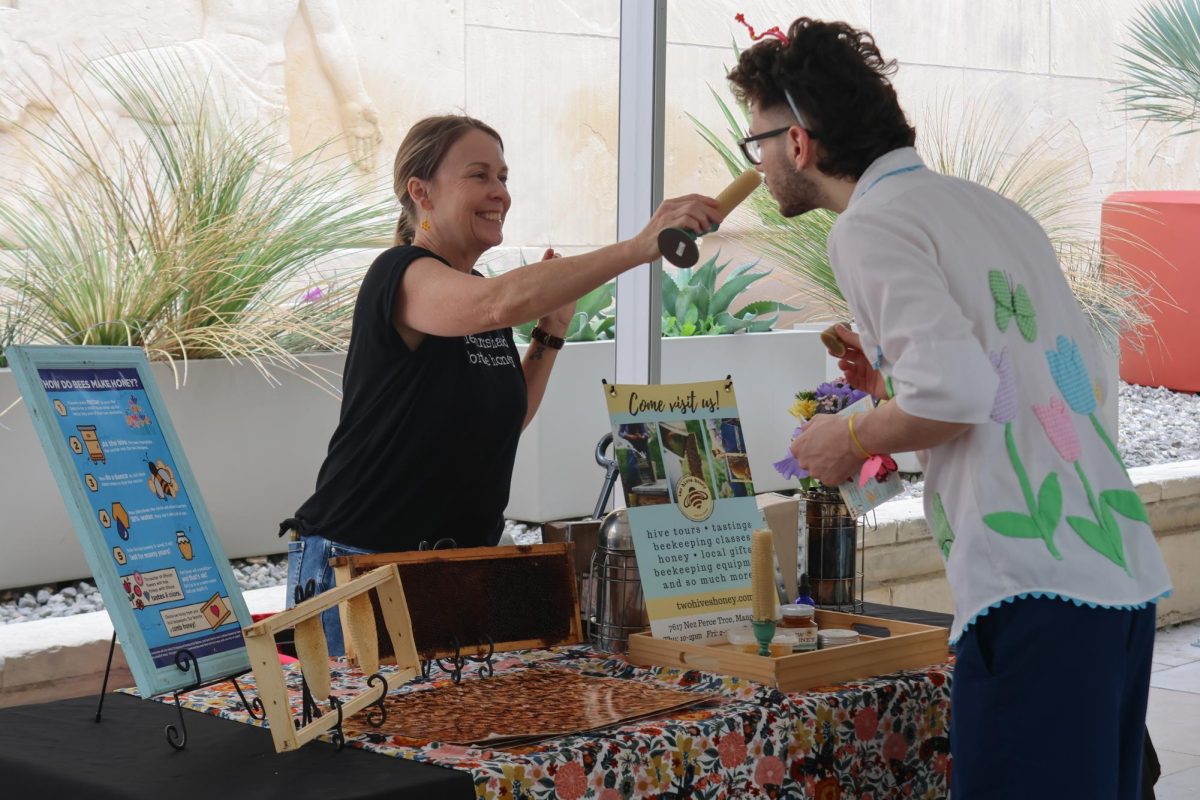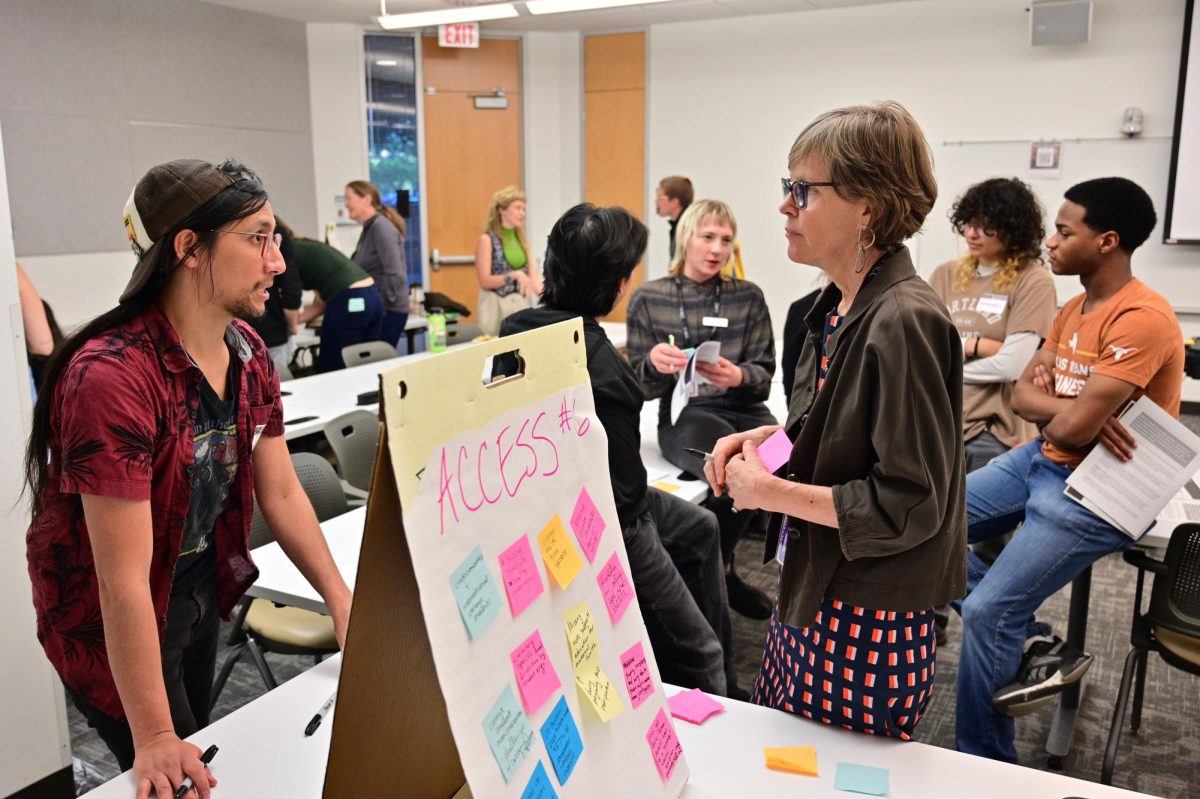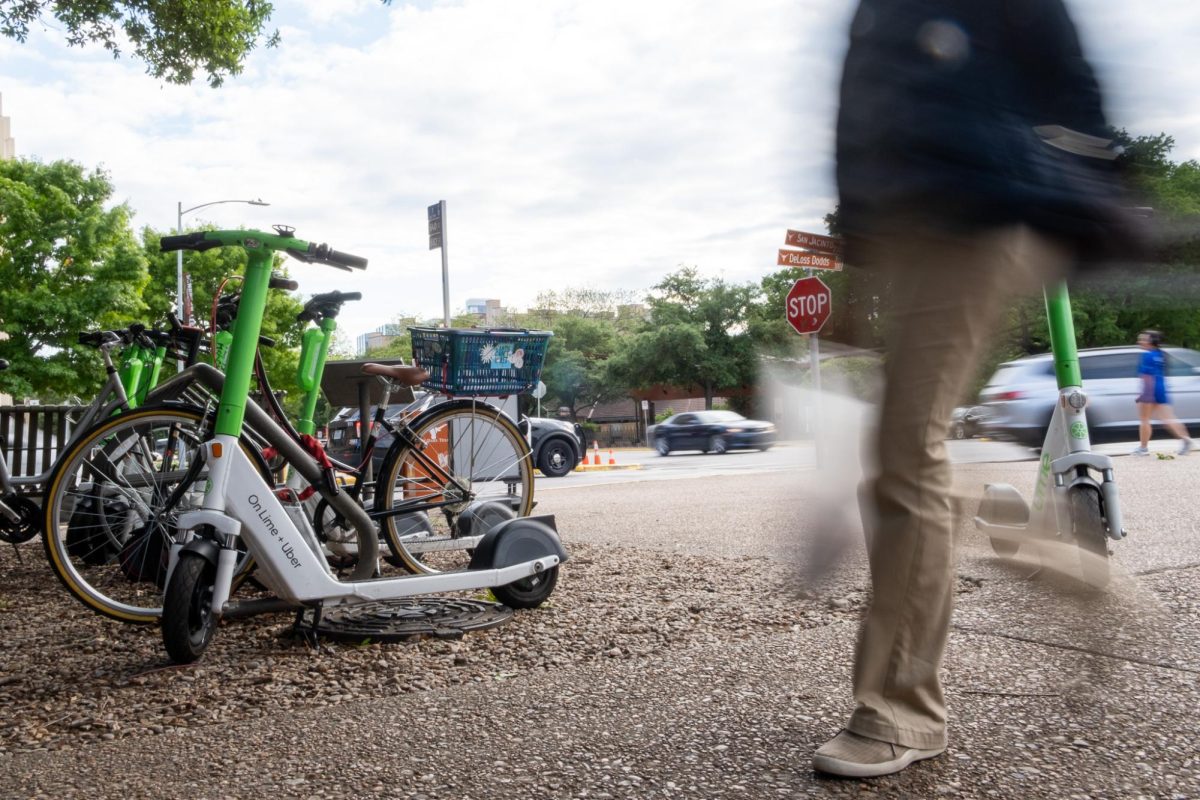[Updated at 10:06 p.m., caption edits]
Approximately 100 Occupy Austin protesters gathered at City Hall on Saturday morning and marched to the Wells Fargo branch at Congress Avenue and East Riverside Drive to participate in National Bank Transfer Day.
Dave Cortez, the head of the Occupy Austin bank action committee, said Saturday’s protests resulted in 11 customers closing their accounts and approximately $15,000 withdrawn from the international bank.
As the protesters marched to the Wells Fargo branch across the Congress Avenue Bridge, many chose to walk in the street without an official permit to do so. Cortez said the police told him this was an illegal action and then screened him for outstanding arrest warrants. For the march back to City Hall, police agreed to escort protesters across the bridge in one lane.
Despite the disobedience by some protesters on the bridge, Sgt. Lee Syga of the Austin Police Department said Saturday’s march occurred without any incident.
“It went great,” Syga said. “It was peaceful, and there was nothing really going on.”
The staff of the Wells Fargo branch was unable to comment on the protests.
Former Wells Fargo customer Cameron Field said the process of closing his account went smoothly, and he is now going to open an account with a credit union.
“[Wells Fargo] was very polite, and they knew why we were out there,” Field said. “Now, it feels good to not have my money tied to a bank that made risky investments and got bailed out.”
In an interview with the Daily Texan last week, senior finance lecturer Regina Hughes said the primary difference between credit unions and commercial banks is the ownership.
Hughes said commercial banks, such as Bank of America and Wells Fargo, are for-profit entities owned by shareholders. Credit unions are controlled by their members, who directly make policies for other members and are not necessarily looking to make huge profits. They also do not provide the same variety of services, such as types of investments, offered by major commercial banks. Commercial banks, she said, are corporations that invite people to become customers, but their goals can be different and separate from those customers.
Cortez said he is involved with Occupy Austin’s committee to provide informational tool kits for people who are interested in closing their bank accounts and switching to a local credit union.
“In Austin, we have coordinated the withdrawal of over $430,000 from the major banks,” Cortez said. “It shows that people have some power against the big banks and is a tangible morale booster for the [Occupy movement].”
Current Wells Fargo customer Andrea Street said she is seriously considering closing her account because of the way the major banks treat their customers.
“Wells Fargo is making their customers pay extra fees to cover for the fines the federal government is making them pay for their violations,” Street said. “We are out here to hit them in the pocket where it counts.”
Protester Leslie Perry said she closed her Wells Fargo account in 1994 to join a credit union and is excited to see more people doing so now.
“I am very anxious yet optimistic to see what’s going to come out of all this,” Perry said. “People are finally realizing our whole monetary system is set up to serve the rich.”




















